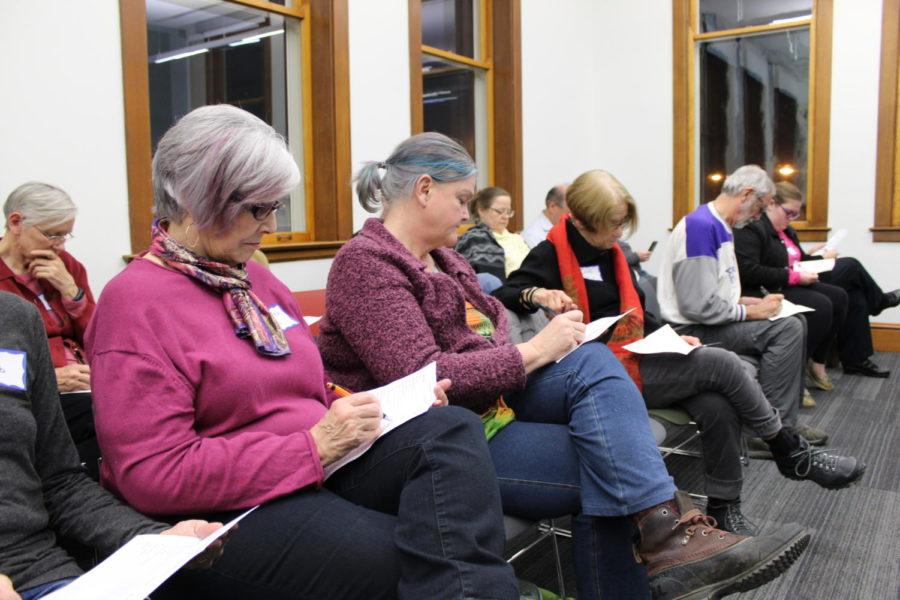Ames community members reflect on privilege
Attendees participated in a variety of reflections, which encouraged them to reflect on certain privileges they may or may not have, and how they play out in society.
February 5, 2019
Members of the Ames community were encouraged to think actively about their own privilege during a lecture and group activities.
The event took place from 6:30 to 8:30 p.m. in the Ames Public Library, in partnership with Ames Progressive Alliance and Inclusive Ames. Erin Pederson, a licensed psychologist, gave the lecture and facilitated the discussion.
Pederson said she defines social privilege as “a benefit or advantage that is granted to or is accessible to some groups of people, but not to others.”
Embracing and challenging personal discomfort when discussing privilege or the challenging of one’s privilege was something Pederson said was important.
“In identities that we hold that we experience privilege, if you experience discomfort in regard to that privilege, lean into that a little bit,” Pederson said.
Pederson explained that privilege is not always especially advantageous, and it could be something which may generally be viewed as a right.
“Not experiencing gender based street harassment, we can probably all agree, should be a right,” Pederson said, “It’s not sort of an ‘extra privilege’ to be able to walk down the street and not have people harass you about your gender.”
Attendees were encouraged to think on a group level and consider larger scale impact when discussing privilege, rather than think about experience or privilege on the personal level.
“It matters what’s going on individually, but that’s not the main part of the picture,” Pederson said.
Pederson also offered ways attendees could push back against systems of oppression, such as watching for examples of privilege and increasing their awareness. She gave an example, discussing people of color whom she knows that have their receipts checked when they shop at Walmart, something she said she has not experienced.
Ames resident Mary Wheelock said she felt Pederson’s message of being more actively aware of privilege stood out as an important takeaway from the event.
By practicing things like not interrupting women, intentionally listening to those who are different and not judging or criticizing those of larger size, Pederson said one could continue to find ways to act against privilege and systems of oppression.
Pederson emphasized it is important to critique the words or behavior, without attacking the individual when expressing concern about a person who may say something prejudicial. However, Pederson said, instead of feeling attacked or ashamed, it is important to always accept criticism of one’s own actions, listen intently and receive the feedback, regardless of the delivery.
Common barriers to conversations about privilege, as well as common misconceptions about privilege were discussed. Pederson said having privilege does not mean one has not worked hard, it is not something the individual asked for and that being privileged does not mean and individual has not experienced their own difficulties.
Attendees were encouraged to use what is known as the “ADDRESSING” model, which encourages people to consider areas where they may have privilege including race, gender, religion and socioeconomic status.
While Pederson said she did not think that the model is all inclusive when reflecting on privileged identities, she said it is a strong starting place for considering one’s privilege.
Attendees were encouraged to reflect personally on the ways privilege affects their lives, while Pederson read scenarios which exemplify how privilege may affect one’s day to day life. After giving examples, Pederson would say which type of privilege people who answered yes are benefitting from.
Ria Keinert, an Ames resident, said an activity which required her to check-mark whether she had experienced certain privileges or not, was important to assist her in visualizing her own privileges.
“I’ve known for years that I was super privileged, but seeing all those check marks, it was a visual that I guess I needed to see,” Keinert said, “It made it more tangible.”







